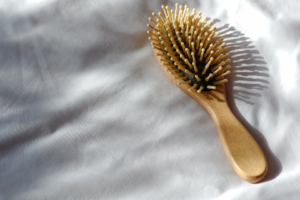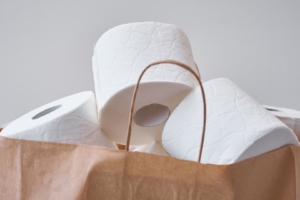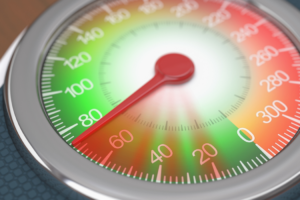Constipation is normal immediately after bariatric surgery and will resolve on its own within six months. Constipation is more common after sleeve gastrectomy and less common after gastric bypass and mini-gastric bypass surgery.
In most cases, constipation is caused by small food portions, high-protein liquid meals, low-fibre foods, not drinking enough water and lack of exercise, but it can also be a side effect of medications (opioids) and food supplements (iron and calcium). Over time, the quantity and content of meals will change, the digestive tract will become used to the circumstances and the bowel movements will return to normal.
NUTRITION
The consumption of proteins must be strictly monitored post-surgery. However, other nutrients besides protein often go unnoticed. It is important to eat enough fibre to avoid constipation. Fibre softens and adds bulk to the stool, helps it pass more quickly and stimulates intestinal motility. In addition to preventing constipation, fibre also helps balance the microflora of the digestive system, lowers cholesterol levels and is important for weight loss and maintaining weight loss.
Good sources of fibre are:
- Oatmeal and oat flour
- Berries and fruit
- Vegetables and leafy greens (the latter starting from the third period)
- Legumes such as beans, peas, lentils (starting from the third period)
- Chia seeds (starting from the third period, mixed into food)
- Almonds and nuts (starting from the third period, soak in water for 12 hours beforehand)
However, you should not consume too much fibre initially as it creates a feeling of fullness and can further reduce the size of your already small portions of food, thus contributing to nutritional deficiencies and fatigue. Later on, fibre is good for portion control and weight loss.
It is advisable to exclude refined flour products (white bread, white pasta, refined rice) from your menu as they can cause constipation.
CONSUMPTION OF WATER
Even though we all know the importance of drinking water, we sometimes still forget to do it. If you experience constipation after bariatric surgery, take a look at your liquid consumption. Dehydration in your body also affects your intestines which, in turn, can cause constipation.
If you consume beverages that contain caffeine (coffee, tea, energy drinks), you should also consume more liquids because caffeine increases urine output.
PHYSICAL ACTIVITY
Light physical activity, such as walking, improves blood circulation in the body and stimulates bowel movements.
In addition, exercise helps you to lose weight and maintain weight loss. When you get home from hospital, you should be physically active for at least 60 minutes every day. Choose a slower speed at first and as you build up your endurance you can increase the speed accordingly. After six weeks, it is time to start more intense, regular workouts that include exercises that improve strength, flexibility and endurance.
Exercise at least three times a week and for no less than three hours per week (Nordic walking, cycling, swimming, fitness, etc.). The exercise must be aerobic in nature, and performed at an intensity that allows you to speak normally while working out. Studies show that patients who exercise for a minimum of 120 minutes per week lose 4 kg more weight on average than those who do not exercise. In addition to weight loss, physical activity also has many other positive health benefits.
To develop a bowel movement reflex, drink a glass of water every morning. Do not ignore the defecation reflex because delaying the defecation causes the stool to become harder and more difficult to pass.
If the above does not help, you can use laxatives (without a prescription) and food supplements. Treatment with laxatives should not exceed one month.
- Duphalac: 40 ml a day, takes 2–3 days to have an effect
- Guttalax, Regulax: 10–20 drops a day, takes 6–12 hours to have an effect
- Forlax: 10–20 grams a day (1–2 sachets), takes 24–48 hours to have an effect
- Microlax: once or twice a day, takes 15–60 minutes to have an effect
- Bisacodyl 5mg tablets: 1 tablet once or twice a day, takes 6–12 hours to have an effect
- Bisacodyl suppositories: 1 suppository once a day, takes 6–12 hours to have an effect
- Senna tablets or tea made from senna leaves, takes 8–10 hours to have an effect
- Fibre, e.g. Bio Fiber: 4 tablets a day
When taking laxatives, it is very important to consume at least 2,000 ml of fluids per day.









